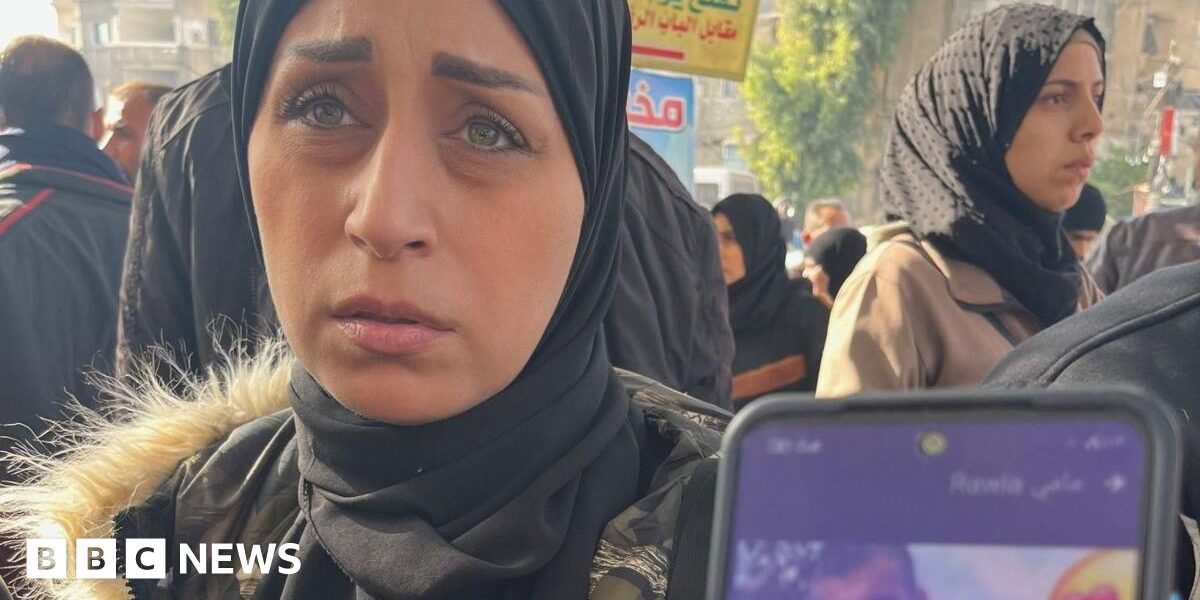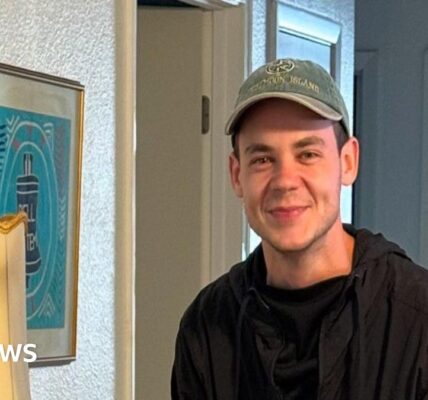The extended Assad family treated Syria as their own personal possession, enriching themselves and buying trust with their followers at the expense of Syrians who could be thrown into jail or killed if they stepped out of line, or even if they didn’t.
A fighter called Ahmed, who had taken up arms against the regime in 2011, survived the rebel defeat in Damascus, and fought his way back from Idlib with the rebels of Hayat Tahrir al Sham was inspecting the way the Assads lived with his three brothers, all rebel fighters.
“People were living in hell and he was in his palace,” Ahmed said calmly.
“He didn’t care about what they were going through. He made them live in fear, hunger and humiliation. Even after we entered Damascus people would only whisper to us, because they were still afraid.”
I found the marble guesthouse, and walked through the walnut-panelled, marble-floored library where I had interviewed Assad when the regime was fighting for survival in February 2015.
The highlight of the interview were his denials that his forces were killing civilians. He even tried to joke about it.
Now, rebel fighters were on the door and patrolling the corridors. Some of the books had fallen off the library shelves, but the building was intact.
I walked across to an ante room where Assad would grant 10 or 15 minutes of private conversation before the interview.
He was unfailingly polite, even solicitous, enquiring about my family, and the journey to Syria.
Bashar al-Assad’s slightly awkward demeanour made some western observers believe he was a lightweight who might bend to pressure.
In private I found him self-confident to the point of arrogance, convinced he was the all-knowing spider at the heart of the Middle East web, tracking his enemies’ malign intentions and ready to strike.
His father Hafez al-Assad was a kingpin of the Middle East. He was a ruthless man who built the police state that lasted for over fifty years, using fear, guile and a willingness to destroy any threat to impose stability on Syria, a country that had been a byword for violent changes of government until he seized sole power in 1970.
I had the impression that Bashar wanted to be his father’s son, perhaps even to outdo him.
He killed many more Syrians than Hafez and broke the country to try to save the regime.
But Bashar’s stubbornness, refusal to reform or negotiate and his willingness to kill sealed his fate and condemned him to a last terrified drive to the airport with his wife and children on their last flight out of Syria to Moscow.





